Formula

Perhaps the most important nutrient needed to support thyroid function is Iodine. In order for our bodies to produce thyroid hormones, it needs iodine. Unfortunately, much of the world’s diet does not contain a lot of iodine. A study conducted by the World Health Organization estimated that around two billion people in the world do not currently have a sufficient iodine intake.1
Vegetarians and pregnant women are one of the groups that are very susceptible to deficient iodine intake. Near the 3rd month of pregnancy, the T4 thyroid hormone thyroxine almost doubles in production. These bodies in turn require larger amounts of iodine. 2 If they do not get this additional iodine, they cannot give their babies the proper nutrition and nourishment it needs for healthy neurological development. Studies have shown that the lack of iodine in babies result in a higher risk of learning disabilities and can significantly lower IQ points. 3, 4
Vegetarians also suffer from lack of enough iodine. If they eat food grown in soils that are lacking nutrients or if they avoid sea vegetables all together, vegetarians will not get the recommended amount of iodine. 5, 6
ThryoMate contains iodine extracted from kelp, as foods high in iodine, such as seaweed, are thought to be helpful in treating those whose thyroid issues stems from iodine deficiency. 3, 4
1. de Benoist B, McLean E, Andersson M, Rogers L. Iodine deficiency in 2007: global progress since 2003. Food Nutr Bull. 2008;29(3).
2. de Escobar GM, Obregón MJ, del Rey FE. Iodine deficiency and brain development in the first half of pregnancy. Public Health Nutr. 2007 Dec;10(12A).
3. Smallridge RC, Ladenson PW. Hypothyroidism in pregnancy: consequences to neonatal health. J Clin Endocrinol Metab. 2001 Jun;86(6).
4. Santiago-Fernandez P, Torres-Barahona R, Muela-Martínez JA, Rojo-Martínez G, García-Fuentes E, Garriga MJ, et al. Intelligence quotient and iodine intake: a cross-sectional study in children. J Clin Endocrinol Metab. 2004 Aug;89(8)
5. Remer T, Neubert A, Manz F. Increased risk of iodine deficiency with vegetarian nutrition.Br J Nutr. 1999 Jan;81(1).
6. Krajcovicová-Kudlácková M, Bucková K, Klimes I, Seboková E. Iodine deficiency in vegetarians and vegans. Ann Nutr Metab. 2003;47(5).
Iodine
An essential element in the diet that is required to produce the active thyroid hormones T3 and T4. Deficiencies results in less of these hormones as well as reduced cognition or cretinism (severe deficiency in utero).
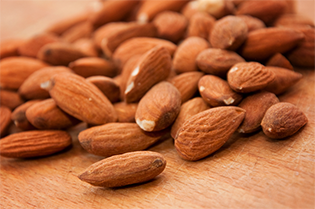
Magnesium is needed in order to offset the calcium intake and thus promote healthy thyroid function.
We included Magnesium in this formula because studies show that a large amount of Americans, 68% in fact, do not consume the recommended daily intake of magnesium. This study also states 19% of Americans do not consume even half of the government's recommended daily intake of magnesium.1
Proper magnesium dietary intake is needed to offset calcium levels in the bloodstream. If you do not have enough magnesium, your calcium levels will be higher throughout your body since there will be nothing to counteract it. This in turn will cause the thyroid gland to output a hormone called calcitonin eventually leading to lower calcium levels throughout your blood. However, it will need magnesium in order to do this.
As stated in the referenced study: “The higher the level of hair calcium, in general, the lower the effective activity of the thyroid gland. This occurs because one of the effects of T3 and T4 is to lower calcium levels in the tissues and at times, in the blood.”
Since lower calcium levels in a body leads to a more active parathyroid gland, it will cause more parathyroid hormones to be produced through the body. However, this entire system depends on a proper amount of magnesium dosage.2,3
Finally, magnesium is also necessary for the proper absorption of iodine.
1. King D, Mainous A 3rd, Geesey M, Woolson R. Dietary magnesium and C-reactive protein levels. J Am Coll Nutr. 2005 Jun 24(3):166-71. < br/>
2. Quamme, G. A., Carney, S. L., Wong, N. L., & Dirks, J. H. (1980). Effect of parathyroid hormone on renal calcium and magnesium reabsorption in magnesium deficient rats. Pflugers Arch, 386(1), 59-65.
3. http://www.jpbms.info/index.php?option=com_docman&task=doc_download&gid=115&Itemid=48.
Magnesium
Element necessary for over 300 different enzyme reactions and along with calcium, stimulates the parathyroid gland to release parathyroid hormone.
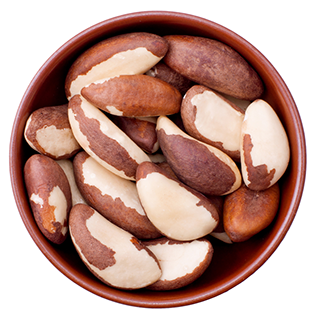
Selenium plays an important role in thyroid gland functionality and supports thyroid hormone synthesis. First and foremost, Selenium acts as an antioxidant that protects the thyroid gland from harmful bacteria and diseases. Secondly, Selenium is a cofactor nutrient that facilitates the production of thyroid hormone. Without Selenium, thyroid hormone production will be severely limited. Finally, Selenium is also nutrient in the process that is required to convert T4 hormones to T3 active thyroid hormones that will eventually set the pace of metabolism.
Selenium is required in order for the thyroid hormone production to jump start. Studies have shown that patients, who have been diagnosed with thyroid diseases, tested for having lower selenium levels when compared to other healthy people in their age group.1
Recent studies seem to suggest that having more selenium intake results in more conversions of thyroid hormones: T4, thyroxine, to T3, triiodothyronine.2 Apart from helping produce more hormones, Selenium also plays a big role in protecting the thyroid gland itself. Hydrogen Peroxide can become harmful to the thyroid gland and without selenium, the thyroid gland could end up with oxidative damage.3, 4
1. Kucharzewski M, Braziewicz J, Majewska U, Góźdź S. Concentration of selenium in the whole blood and the thyroid tissue of patients with various thyroid diseases. Biol Trace Elem Res. 2002 Jul;88(1):25-30.
2. Rayman MP. The importance of selenium to human health. Lancet. 2000 Jul 15;356(9225):233-241.
3. Köhrle J. The trace element selenium and the thyroid gland. Biochimie. 1999 May;81(5):527-33.
4. Zimmermann MB, Köhrle J. The impact of iron and selenium deficiencies on iodine and thyroid metabolism: biochemistry and relevance to public health. Thyroid. 2002 Oct;12(10):867-78.
Selenium
Crucial component of the enzyme that converts T4 to T3 in the body. Without it, T3 cannot be produced in the right amounts.
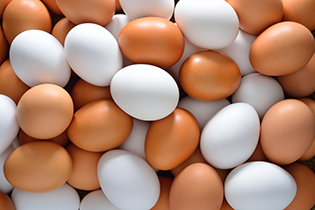
L-tyrosine is an amino acid that is used for the production of neurotransmitters. It also helps stimulate the thyroid gland in the T4 to T3 conversions.
Taking too little of this critical amino acid can limit the amount of thyroid hormones the body can make. L-tyrosine is included in ThyroMate in order to kick start a sluggish thyroid, by supporting the production of thyroid hormones.
L-Tyrosine
A critical amino acid necessary for the manufacture of thyroxine (T4), as well as dopamine, norepinephrine, and epinephrine. Supports dealing with physical stress and healthy moods.

B12 is a key vitamin which has an important role in cell metabolism of your entire body. B12 gives you energy, increases brain sharpness, and improves nervous system functionality. Unfortunately, people with thyroid problems are often lacking from a sufficient amount of B12, largely due to not being able to digest foods with B12 vitamins. In one study that we found, doctors reported that of around 120 patients who had hypothyroidism (an underactive thyroid), around 40% of them were found to be deficient of the B12 vitamin.1
1. Jabbar A, Yawar A, Waseem S, et al. Vitamin B12 deficiency common in primary hypothyroidism. J Pak Med Assoc. 2008 May;58(5):258-61.
Vitamin B-12
Essential water-soluble vitamin used to boost energy, mood, and concentration while potentially slowing aging

Zinc is needed both before and after the production and conversion processes of thyroxine(T4) to triiodothyronine (T3). Zinc is necessary because it stimulates the pituitary gland, allowing for it to send signals to the thyroid gland so it can produce thyroid hormone. Research has shown people who have low thyronine levels may benefit from Zinc as it could help improve the conversion to T-4 hormones.
It is well known throughout the thyroid community that a zinc deficiency lowers T3 and T4 hormones. This is evidenced by studies conducted on animals as well as human.1 In a human study, a group of people, who tested for deficient T3, and T4 hormones as well as zinc, were given zinc supplements for one year. After testing them again at the end of the study, they found that the patients had levels normal to those in their age group.2
1. Kralik A, Eder K, Kirchgessner M. Influence of zinc and selenium deficiency on parameters relating to thyroid hormone metabolism. Horm Metab Res. 1996 May;28(5):223-6.
2. Nishiyama S, Futagoishi-Suginohara Y, Matsukura M, et al. Zinc supplementation alters thyroid hormone metabolism in disabled patients with zinc deficiency. J Am Coll Nutr. 1994 Feb;13(1):62-7.
Zinc
Acts as a catalyst in over 100 different enzyme reactions required by our body, and is involved in DNA synthesis, immune function, protein synthesis, and cell division.
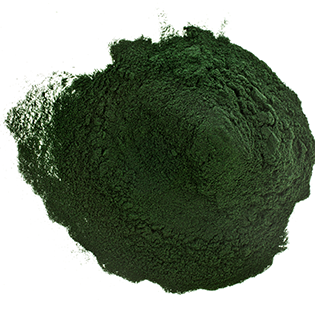
Kelp contains Iodine among other nutrients including iron. The thyroid enzyme peroxidase is responsible for catalyzing many reactions in the thyroid. When a person has an iron deficiency, this enzyme is severely reduced. This results in less thyroid hormone being produced. One study shows that a group of women who are diagnosed with hypothyroidism were found to have a significantly lower amount of iron than the control group (16% to 10%).1
1. Duntas LH, Papanastasiou L, Mantzou E, Koutras DA. Incidence of sideropenia and effects of iron repletion treatment in women with subclinical hypothyroidism. Exp Clin Endocrinol Diabetes. 1999;107(6):356-60.
Kelp
Required for activity of the enzyme thyroid peroxidase, which in turn increases thyroid hormones. Over 80 metabolic genes responding to a thyroid order all need iron
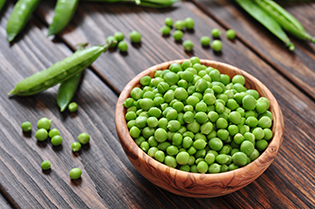
Studies have shown copper is an important minerals for normal brain development. A deficiency of copper leaves parts of the brain, including the hypothalamus, the area associated with hormone release, unable to regulate thyroid hormone effectively. A study has shown that pregnant rats who tested for lower copper levels than normal, gave birth to rats that ultimately ended up producing about half as less of the thyroid hormone T3 than the rats who were born from mothers who had normal copper levels.1
Furthermore another study in 1995 again suggests that those who have a diet lower than the recommended amount of copper ended up having more hypothyroidism symptoms as shown in lower T3 levels and increases in TSH levels. In this study, three groups of rats were given different diets consisting of recommended amounts of barely, or deficient copper intake for about a month. The rats who were copper deficient ended up having significantly lower TSH levels, compared with the rats who were fed the recommended diet.2
Copper is one of the key minerals shown to have a part in the activation and production of the thyroid hormones. Those who are deficient in copper may experience hypothyroid symptoms. Sufficient copper also ensures adequate utilization of iron in the body.
1. Bastian TW, Prohaska JR, Georgieff MK, Anderson GW. Perinatal iron and copper deficiencies alter neonatal rat circulating and brain thyroid hormone concentrations. Endocrinology. 2010 Aug;151(8):4055-65.
2. Lukaski H C et al. Body temperature and thyroid hormone metabolism of copper deficient rats. Nutr Biochem 1995;6:445-451.
Copper
Important for normal brain development. Deficiency leaves the hypothalamus unable to regulate thyroid hormone effectively.
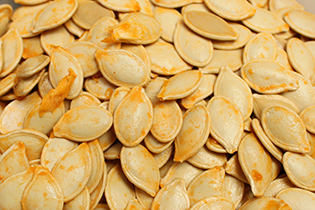
Manganese is a mineral that is shown to play a big role in the function of our livers, our bodies metabolism, and the anti-oxidant status of our liver. Since activation of hormone releases occurs throughout the liver, it is important to supply the neccesary nutrients to allow the liver to function as mcuh as it can. If it does not have the nutrients, the activation of thyroid hormone may not be as much or complete. It is also a vital part of the cell's antioxidant defense. A Key antioxidant enzyme called manganese-dependent superoxide dismutase is important for those who may have problems with their thyroid since it lowers oxidative stress. If this is lacking, the activation of thyroid hormones will not go as smooth due to the higher stress levels.
In addition, a study in 2007 states that "experimental findings point to the ability of manganese to interfere with deiodinase activity.” Since this in turn would affect the amount of circulating thyroid hormone, it is important to supplement your diet with manganese.1
1. Soldin O, Aschner M. EFFECTS OF MANGANESE ON THYROID HORMONE HOMEOSTASIS: POTENTIAL LINKS. Neurotoxicology. 2007;28(5):951-956. doi:10.1016/j.neuro.2007.05.003.
Manganese
Interacts synergistically with Iodine in the manufacturing of thyroid hormones.

Most may have never heard the word molybdenum before, but it is an important mineral that helps with maintaining a proper pH level. Without an equal pH level, oxygen levels within the body will decrease and lead to burning less fat due to a lower metabolism.
Molybdenum assists in helping start the production of sulfite oxidase, xanthine oxidase, aldehyde oxidase, and mitochondrial amidoxime-reducing component. These important enzymes help the thyroid through many different ways.
Molybdenum
Trace mineral that interacts with enzymatic systems to influence overall well-being and carbohydrate metabolism. Also helps maintain proper pH equilibrium.

Schisandra is extracted from the red fruit and is considered to be a stress reliever among many other uses. One of the other uses, and primarily uses in ThyroMate, of Schisandra is a protectant of liver tissue and function. Without a healthy liver, thyroid health and function can be thrown out of balance. Schisandra is also used to induce isozymes within the body and its antioxidant qualities is helpful in treating autoimmune diseases. Many have reported increased mental and physical endurance as well as stress reduction. All of these aspects combined lead to a better thyroid.
Schisandra
Provides powerful antioxidant protection that is helpful in the treatment of autoimmune diseases. Glutathione and glutathione S-transferase enzymes are also induced by schisandra

Ashwagandha is an herb noted for its ability to calm nerves and improve sleep. It is an amphoteric adaptogen with anti-inflammatory and antioxidant qualities that regulate the neuroendocrine system. Ashwagandha contains alkaloids, steroidal lactones and saponins active in the hormonal pathways in the body. These constituents increase T4 hormone production and help with the conversion of T4 to T3. Ashwagandha also increases hepatic glucose-6 phosphatase and reduces lipid peroxidation of hepatic tissues.1 These processes help protect the liver and detoxification pathways.
1. Panda, J. Ethnopharmacol 67(2):233-239, 1999
Image Credit
Ashwagandha
Herbal adaptogen that helps body adapt to stress and helps support physiological processes within the body.
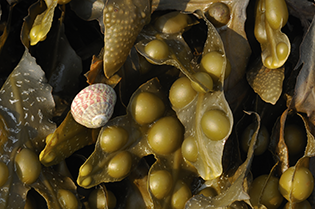
Bladderwrack, also known as fucus vesiculosus, is a type of kelp that has been seen to be helpful in the treatment of obesity and cellulite. The main use of the herb in ThyroMate is the stimulation of the thyroid gland through its high iodine content. Many have reported increased metabolism because of this.
Bladderwrack has also been reported to decrease cholestrol accumulation through lowering the trans-sialidase activity in the blood. 1,3 Those who might have hyperlipidemia may benefit from bladderwrack as decreased metabolism is associated with this. Its highest antioxidant activity may also be helpful in thyroid functionality.2
1. Yan X, Chuda Y, Suzuki M, Nagata T. Fucoxanthin as the major antioxidant in Hijikia fusiformis, a common edible seaweed. Biosci Biotechnol Biochem 1999;63(3):605-607.
2. Jimenez-Escrig A, Jimenez-Jimenez I, Pulido R, Saura- Calixto F. Antioxidant activity of fresh and processed edible seaweeds. J Sci Food Agric 2001;81(5):530-534.
3. Aksenov DV, Kaplun VV, Tertov VV, Sobenin IA, Orekhov AN. Effect of plant extracts on trans-sialidase activity in human blood plasma. Bull Exp Biol Med 2007;143(1):46-50.
Bladderwrack
Seaweed that decreases trans-sialidase activity in the blood, an enzyme associated with cholesterol accumulation. Benefits patients with low thyroid function as decreased metabolism is associated with hyperlipidemia

The Cayenne pepper is called the "King of Herbs" and for good reason: it is a very useful herb that helps with digesting food and making the circulatory system more efficient.
As evidenced in a study in the “Journal of Biological Chemistry” published in 2008, the cayenne pepper has the ability to increase one's metabolism, even if its just a bit.1 The University of Maryland has also concluded that cayenne peppers might be able to suppress your appetite so you do not eat as much. While losing weight does not directly affect thyroid health, it can lead to a stress free body. Stress free bodies can eventually lead to a healthier body.
Another one of its interesting properties is that Cayenne Peppers seem to act as a catalyst for other herbals, like ashwagandha, schisandra, increasing their effectiveness.
1. Mahmmoud, Y. A. (2008). Capsaicin Stimulates Uncoupled ATP Hydrolysis by the Sarcoplasmic Reticulum Calcium Pump. Journal of Biological Chemistry, 283(31), 21418–21426. http://doi.org/10.1074/jbc.M803654200
Cayenne Pepper
Spice that helps in improving blood circulation within the body, and acts as a catalyst and increases the effectiveness of other herbs.

Perhaps the most important nutrient needed to support thyroid function is Iodine. In order for our bodies to produce thyroid hormones, it needs iodine. Unfortunately, much of the world’s diet does not contain a lot of iodine. A study conducted by the World Health Organization estimated that around two billion people in the world do not currently have a sufficient iodine intake.1
Vegetarians and pregnant women are one of the groups that are very susceptible to deficient iodine intake. Near the 3rd month of pregnancy, the T4 thyroid hormone thyroxine almost doubles in production. These bodies in turn require larger amounts of iodine. 2 If they do not get this additional iodine, they cannot give their babies the proper nutrition and nourishment it needs for healthy neurological development. Studies have shown that the lack of iodine in babies result in a higher risk of learning disabilities and can significantly lower IQ points. 3, 4
Vegetarians also suffer from lack of enough iodine. If they eat food grown in soils that are lacking nutrients or if they avoid sea vegetables all together, vegetarians will not get the recommended amount of iodine. 5, 6
ThryoMate contains iodine extracted from kelp, as foods high in iodine, such as seaweed, are thought to be helpful in treating those whose thyroid issues stems from iodine deficiency. 3, 4
1. de Benoist B, McLean E, Andersson M, Rogers L. Iodine deficiency in 2007: global progress since 2003. Food Nutr Bull. 2008;29(3).
2. de Escobar GM, Obregón MJ, del Rey FE. Iodine deficiency and brain development in the first half of pregnancy. Public Health Nutr. 2007 Dec;10(12A).
3. Smallridge RC, Ladenson PW. Hypothyroidism in pregnancy: consequences to neonatal health. J Clin Endocrinol Metab. 2001 Jun;86(6).
4. Santiago-Fernandez P, Torres-Barahona R, Muela-Martínez JA, Rojo-Martínez G, García-Fuentes E, Garriga MJ, et al. Intelligence quotient and iodine intake: a cross-sectional study in children. J Clin Endocrinol Metab. 2004 Aug;89(8)
5. Remer T, Neubert A, Manz F. Increased risk of iodine deficiency with vegetarian nutrition.Br J Nutr. 1999 Jan;81(1).
6. Krajcovicová-Kudlácková M, Bucková K, Klimes I, Seboková E. Iodine deficiency in vegetarians and vegans. Ann Nutr Metab. 2003;47(5).
Iodine
An essential element in the diet that is required to produce the active thyroid hormones T3 and T4. Deficiencies results in less of these hormones as well as reduced cognition or cretinism (severe deficiency in utero).

Magnesium is needed in order to offset the calcium intake and thus promote healthy thyroid function.
We included Magnesium in this formula because studies show that a large amount of Americans, 68% in fact, do not consume the recommended daily intake of magnesium. This study also states 19% of Americans do not consume even half of the government's recommended daily intake of magnesium.1
Proper magnesium dietary intake is needed to offset calcium levels in the bloodstream. If you do not have enough magnesium, your calcium levels will be higher throughout your body since there will be nothing to counteract it. This in turn will cause the thyroid gland to output a hormone called calcitonin eventually leading to lower calcium levels throughout your blood. However, it will need magnesium in order to do this.
As stated in the referenced study: “The higher the level of hair calcium, in general, the lower the effective activity of the thyroid gland. This occurs because one of the effects of T3 and T4 is to lower calcium levels in the tissues and at times, in the blood.”
Since lower calcium levels in a body leads to a more active parathyroid gland, it will cause more parathyroid hormones to be produced through the body. However, this entire system depends on a proper amount of magnesium dosage.2,3
Finally, magnesium is also necessary for the proper absorption of iodine.
1. King D, Mainous A 3rd, Geesey M, Woolson R. Dietary magnesium and C-reactive protein levels. J Am Coll Nutr. 2005 Jun 24(3):166-71. < br/>
2. Quamme, G. A., Carney, S. L., Wong, N. L., & Dirks, J. H. (1980). Effect of parathyroid hormone on renal calcium and magnesium reabsorption in magnesium deficient rats. Pflugers Arch, 386(1), 59-65.
3. http://www.jpbms.info/index.php?option=com_docman&task=doc_download&gid=115&Itemid=48.
Magnesium
Element necessary for over 300 different enzyme reactions and along with calcium, stimulates the parathyroid gland to release parathyroid hormone.

Selenium plays an important role in thyroid gland functionality and supports thyroid hormone synthesis. First and foremost, Selenium acts as an antioxidant that protects the thyroid gland from harmful bacteria and diseases. Secondly, Selenium is a cofactor nutrient that facilitates the production of thyroid hormone. Without Selenium, thyroid hormone production will be severely limited. Finally, Selenium is also nutrient in the process that is required to convert T4 hormones to T3 active thyroid hormones that will eventually set the pace of metabolism.
Selenium is required in order for the thyroid hormone production to jump start. Studies have shown that patients, who have been diagnosed with thyroid diseases, tested for having lower selenium levels when compared to other healthy people in their age group.1
Recent studies seem to suggest that having more selenium intake results in more conversions of thyroid hormones: T4, thyroxine, to T3, triiodothyronine.2 Apart from helping produce more hormones, Selenium also plays a big role in protecting the thyroid gland itself. Hydrogen Peroxide can become harmful to the thyroid gland and without selenium, the thyroid gland could end up with oxidative damage.3, 4
1. Kucharzewski M, Braziewicz J, Majewska U, Góźdź S. Concentration of selenium in the whole blood and the thyroid tissue of patients with various thyroid diseases. Biol Trace Elem Res. 2002 Jul;88(1):25-30.
2. Rayman MP. The importance of selenium to human health. Lancet. 2000 Jul 15;356(9225):233-241.
3. Köhrle J. The trace element selenium and the thyroid gland. Biochimie. 1999 May;81(5):527-33.
4. Zimmermann MB, Köhrle J. The impact of iron and selenium deficiencies on iodine and thyroid metabolism: biochemistry and relevance to public health. Thyroid. 2002 Oct;12(10):867-78.
Selenium
Crucial component of the enzyme that converts T4 to T3 in the body. Without it, T3 cannot be produced in the right amounts.

L-tyrosine is an amino acid that is used for the production of neurotransmitters. It also helps stimulate the thyroid gland in the T4 to T3 conversions.
Taking too little of this critical amino acid can limit the amount of thyroid hormones the body can make. L-tyrosine is included in ThyroMate in order to kick start a sluggish thyroid, by supporting the production of thyroid hormones.
L-Tyrosine
A critical amino acid necessary for the manufacture of thyroxine (T4), as well as dopamine, norepinephrine, and epinephrine. Supports dealing with physical stress and healthy moods.

B12 is a key vitamin which has an important role in cell metabolism of your entire body. B12 gives you energy, increases brain sharpness, and improves nervous system functionality. Unfortunately, people with thyroid problems are often lacking from a sufficient amount of B12, largely due to not being able to digest foods with B12 vitamins. In one study that we found, doctors reported that of around 120 patients who had hypothyroidism (an underactive thyroid), around 40% of them were found to be deficient of the B12 vitamin.1
1. Jabbar A, Yawar A, Waseem S, et al. Vitamin B12 deficiency common in primary hypothyroidism. J Pak Med Assoc. 2008 May;58(5):258-61.
Vitamin B-12
Essential water-soluble vitamin used to boost energy, mood, and concentration while potentially slowing aging

Zinc is needed both before and after the production and conversion processes of thyroxine(T4) to triiodothyronine (T3). Zinc is necessary because it stimulates the pituitary gland, allowing for it to send signals to the thyroid gland so it can produce thyroid hormone. Research has shown people who have low thyronine levels may benefit from Zinc as it could help improve the conversion to T-4 hormones.
It is well known throughout the thyroid community that a zinc deficiency lowers T3 and T4 hormones. This is evidenced by studies conducted on animals as well as human.1 In a human study, a group of people, who tested for deficient T3, and T4 hormones as well as zinc, were given zinc supplements for one year. After testing them again at the end of the study, they found that the patients had levels normal to those in their age group.2
1. Kralik A, Eder K, Kirchgessner M. Influence of zinc and selenium deficiency on parameters relating to thyroid hormone metabolism. Horm Metab Res. 1996 May;28(5):223-6.
2. Nishiyama S, Futagoishi-Suginohara Y, Matsukura M, et al. Zinc supplementation alters thyroid hormone metabolism in disabled patients with zinc deficiency. J Am Coll Nutr. 1994 Feb;13(1):62-7.
Zinc
Acts as a catalyst in over 100 different enzyme reactions required by our body, and is involved in DNA synthesis, immune function, protein synthesis, and cell division.

Kelp contains Iodine among other nutrients including iron. The thyroid enzyme peroxidase is responsible for catalyzing many reactions in the thyroid. When a person has an iron deficiency, this enzyme is severely reduced. This results in less thyroid hormone being produced. One study shows that a group of women who are diagnosed with hypothyroidism were found to have a significantly lower amount of iron than the control group (16% to 10%).1
1. Duntas LH, Papanastasiou L, Mantzou E, Koutras DA. Incidence of sideropenia and effects of iron repletion treatment in women with subclinical hypothyroidism. Exp Clin Endocrinol Diabetes. 1999;107(6):356-60.
Kelp
Required for activity of the enzyme thyroid peroxidase, which in turn increases thyroid hormones. Over 80 metabolic genes responding to a thyroid order all need iron

Studies have shown copper is an important minerals for normal brain development. A deficiency of copper leaves parts of the brain, including the hypothalamus, the area associated with hormone release, unable to regulate thyroid hormone effectively. A study has shown that pregnant rats who tested for lower copper levels than normal, gave birth to rats that ultimately ended up producing about half as less of the thyroid hormone T3 than the rats who were born from mothers who had normal copper levels.1
Furthermore another study in 1995 again suggests that those who have a diet lower than the recommended amount of copper ended up having more hypothyroidism symptoms as shown in lower T3 levels and increases in TSH levels. In this study, three groups of rats were given different diets consisting of recommended amounts of barely, or deficient copper intake for about a month. The rats who were copper deficient ended up having significantly lower TSH levels, compared with the rats who were fed the recommended diet.2
Copper is one of the key minerals shown to have a part in the activation and production of the thyroid hormones. Those who are deficient in copper may experience hypothyroid symptoms. Sufficient copper also ensures adequate utilization of iron in the body.
1. Bastian TW, Prohaska JR, Georgieff MK, Anderson GW. Perinatal iron and copper deficiencies alter neonatal rat circulating and brain thyroid hormone concentrations. Endocrinology. 2010 Aug;151(8):4055-65.
2. Lukaski H C et al. Body temperature and thyroid hormone metabolism of copper deficient rats. Nutr Biochem 1995;6:445-451.
Copper
Important for normal brain development. Deficiency leaves the hypothalamus unable to regulate thyroid hormone effectively.

Manganese is a mineral that is shown to play a big role in the function of our livers, our bodies metabolism, and the anti-oxidant status of our liver. Since activation of hormone releases occurs throughout the liver, it is important to supply the neccesary nutrients to allow the liver to function as mcuh as it can. If it does not have the nutrients, the activation of thyroid hormone may not be as much or complete. It is also a vital part of the cell's antioxidant defense. A Key antioxidant enzyme called manganese-dependent superoxide dismutase is important for those who may have problems with their thyroid since it lowers oxidative stress. If this is lacking, the activation of thyroid hormones will not go as smooth due to the higher stress levels.
In addition, a study in 2007 states that "experimental findings point to the ability of manganese to interfere with deiodinase activity.” Since this in turn would affect the amount of circulating thyroid hormone, it is important to supplement your diet with manganese.1
1. Soldin O, Aschner M. EFFECTS OF MANGANESE ON THYROID HORMONE HOMEOSTASIS: POTENTIAL LINKS. Neurotoxicology. 2007;28(5):951-956. doi:10.1016/j.neuro.2007.05.003.
Manganese
Interacts synergistically with Iodine in the manufacturing of thyroid hormones.

Most may have never heard the word molybdenum before, but it is an important mineral that helps with maintaining a proper pH level. Without an equal pH level, oxygen levels within the body will decrease and lead to burning less fat due to a lower metabolism.
Molybdenum assists in helping start the production of sulfite oxidase, xanthine oxidase, aldehyde oxidase, and mitochondrial amidoxime-reducing component. These important enzymes help the thyroid through many different ways.
Molybdenum
Trace mineral that interacts with enzymatic systems to influence overall well-being and carbohydrate metabolism. Also helps maintain proper pH equilibrium.

Schisandra is extracted from the red fruit and is considered to be a stress reliever among many other uses. One of the other uses, and primarily uses in ThyroMate, of Schisandra is a protectant of liver tissue and function. Without a healthy liver, thyroid health and function can be thrown out of balance. Schisandra is also used to induce isozymes within the body and its antioxidant qualities is helpful in treating autoimmune diseases. Many have reported increased mental and physical endurance as well as stress reduction. All of these aspects combined lead to a better thyroid.
Schisandra
Provides powerful antioxidant protection that is helpful in the treatment of autoimmune diseases. Glutathione and glutathione S-transferase enzymes are also induced by schisandra

Ashwagandha is an herb noted for its ability to calm nerves and improve sleep. It is an amphoteric adaptogen with anti-inflammatory and antioxidant qualities that regulate the neuroendocrine system. Ashwagandha contains alkaloids, steroidal lactones and saponins active in the hormonal pathways in the body. These constituents increase T4 hormone production and help with the conversion of T4 to T3. Ashwagandha also increases hepatic glucose-6 phosphatase and reduces lipid peroxidation of hepatic tissues.1 These processes help protect the liver and detoxification pathways.
1. Panda, J. Ethnopharmacol 67(2):233-239, 1999
Image Credit
Ashwagandha
Herbal adaptogen that helps body adapt to stress and helps support physiological processes within the body.

Bladderwrack, also known as fucus vesiculosus, is a type of kelp that has been seen to be helpful in the treatment of obesity and cellulite. The main use of the herb in ThyroMate is the stimulation of the thyroid gland through its high iodine content. Many have reported increased metabolism because of this.
Bladderwrack has also been reported to decrease cholestrol accumulation through lowering the trans-sialidase activity in the blood. 1,3 Those who might have hyperlipidemia may benefit from bladderwrack as decreased metabolism is associated with this. Its highest antioxidant activity may also be helpful in thyroid functionality.2
1. Yan X, Chuda Y, Suzuki M, Nagata T. Fucoxanthin as the major antioxidant in Hijikia fusiformis, a common edible seaweed. Biosci Biotechnol Biochem 1999;63(3):605-607.
2. Jimenez-Escrig A, Jimenez-Jimenez I, Pulido R, Saura- Calixto F. Antioxidant activity of fresh and processed edible seaweeds. J Sci Food Agric 2001;81(5):530-534.
3. Aksenov DV, Kaplun VV, Tertov VV, Sobenin IA, Orekhov AN. Effect of plant extracts on trans-sialidase activity in human blood plasma. Bull Exp Biol Med 2007;143(1):46-50.
Bladderwrack
Seaweed that decreases trans-sialidase activity in the blood, an enzyme associated with cholesterol accumulation. Benefits patients with low thyroid function as decreased metabolism is associated with hyperlipidemia

The Cayenne pepper is called the "King of Herbs" and for good reason: it is a very useful herb that helps with digesting food and making the circulatory system more efficient.
As evidenced in a study in the “Journal of Biological Chemistry” published in 2008, the cayenne pepper has the ability to increase one's metabolism, even if its just a bit.1 The University of Maryland has also concluded that cayenne peppers might be able to suppress your appetite so you do not eat as much. While losing weight does not directly affect thyroid health, it can lead to a stress free body. Stress free bodies can eventually lead to a healthier body.
Another one of its interesting properties is that Cayenne Peppers seem to act as a catalyst for other herbals, like ashwagandha, schisandra, increasing their effectiveness.
1. Mahmmoud, Y. A. (2008). Capsaicin Stimulates Uncoupled ATP Hydrolysis by the Sarcoplasmic Reticulum Calcium Pump. Journal of Biological Chemistry, 283(31), 21418–21426. http://doi.org/10.1074/jbc.M803654200
Cayenne Pepper
Spice that helps in improving blood circulation within the body, and acts as a catalyst and increases the effectiveness of other herbs.

